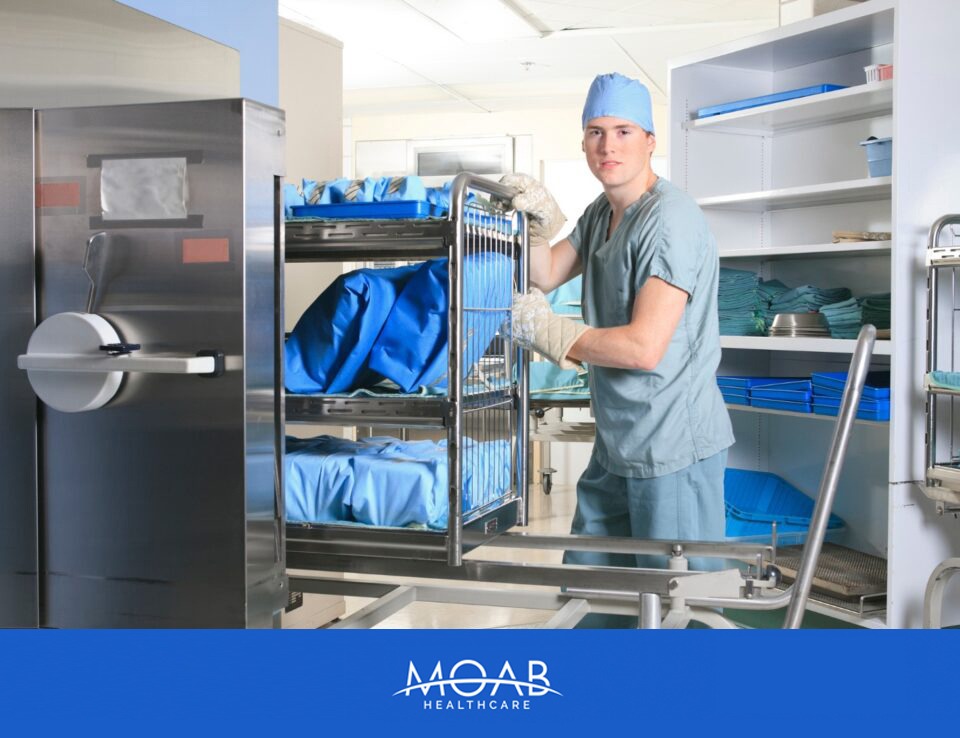
Impact of Sterile Processing in Hospitals
Sterile Processing has a direct and significant effect on surgeon satisfaction, risk, patient safety, revenue, and cost. Disruptions in Sterile Processing or improper sterilization can have serious consequences for surgeons, patients, and hospitals’ bottom-lines.
Most Sterile Processing errors cause significant backlog and delays in surgery. A typical surgical case delay lasts an average of nearly 17 minutes. These delays can decrease surgeon satisfaction, reduce case volume and related revenue while increasing risk and cost at the same time.
Sterile Processing Departments directly affect the costs of specific medical services, including surgical procedures, offered by the hospital. Many institutions treat SPDs as expenses rather than as revenue producers and incorporate the SPD procedural costs into the total costs for their facilities’ medical procedures. SPDs directly affect the net reimbursement to the hospital for diagnostic and surgical procedures, so a department’s overall performance can directly affect a facility’s reimbursement.
The most common errors coming from SPDs are dirty instruments, missing surgical instruments, and broken instruments that end up in the hands of surgeons in the Operating Room. Many times, the surgeon is the first and last quality assurance step in the processes. Most of these errors are a result of having inexperienced, non-certified Sterile Processing Technicians.
Consequences of Suboptimal Performance in Sterile Processing in Hospitals
SPDs handle thousands of reusable surgical and medical instruments and devices every day, reprocessing and readying the used instruments for use in subsequent procedures. Optimal reprocessing results in a seamless supply of sterile instruments when needed, without waste.
Suboptimal reprocessing can return instruments to the Operating Room, cardiac catheterization laboratories, and other procedure areas with human tissue, bone, or other organic material remaining in or on the treated instruments. This can impart disastrous consequences for patients, staff, clinicians, and the institution, as the use of dirty instruments puts patients at risk of Surgical Site Infections (SSIs) and other infections.
The Discovery of a soiled instrument prior to use can adversely affect the patient and the OR by causing procedure delays while the surgical team waits for clean instruments. Procedure delays can extend anesthesia time, which increases patient risk. Furthermore, disruptions associated with procedure delays can lead to other errors. Any delays or complications in the OR can increase patient anxiety and reduce satisfaction. SSIs or other significant complications associated with improperly processes instruments can damage the reputation of an organization or surgeon, trigger reviews by accrediting agencies, result in citations and fines from regulatory bodies, and even lead to lawsuits.
Because of the essential role Sterile Processing plays in the delivery of safe patient care, hospitals across the country are paying close attention to retention and performance in the sterile processing department. Improved retention can help healthcare institutions keep their most valuable sterile processing employees, boost surgeon satisfaction and optimize patient outcomes.
Moab Healthcare’s co-founders have over 50 years of experience in the perioperative space. They understand that sterile processing quality is paramount to success in the OR. Quality starts with experienced and credentialed Sterile Processing Professionals. Moab Healthcare provides full-service and temp to perm solutions to optimize the quality and productivity of Sterile Processing Departments.

